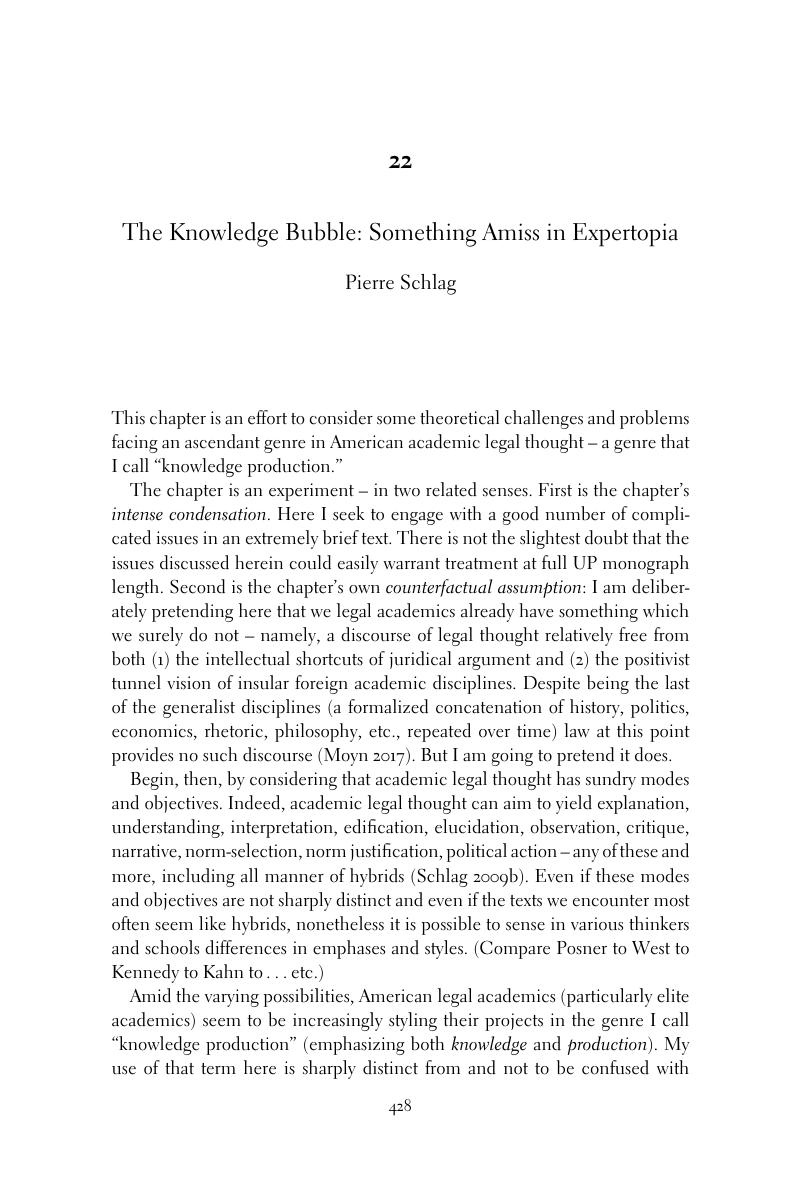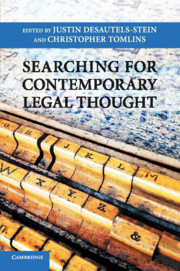Book contents
- Searching for Contemporary Legal Thought
- Reviews
- Searching for Contemporary Legal Thought
- Copyright page
- Contents
- Contributors
- Acknowledgments
- Introduction: Searching for Contemporary Legal Thought: History, Image, and Structure
- Part I Histories of the Legal Contemporary
- Part II Images of the Legal Contemporary?
- Part III Structures of the Legal Contemporary
- 19 A Social Psychological Interpretation of the Hermeneutic of Suspicion in Contemporary American Legal Thought
- 20 Office and Persona of the Critical Jurist: Peripheral Legal Thought (Australia)
- 21 Zombie Jurisprudence
- 22 The Knowledge Bubble: Something Amiss in Expertopia
- 23 ADR and Some Thoughts on “the Social” in Contemporary Legal Thought
- 24 Complexity and Reconstruction as Contemporary Legal Thought: Law–Conflict Interactions and Judicial Work
- 25 Democratic Experimentalism
- 26 Legal Amateurism
- 27 After the End of Legal Thought
- Afterword: Contemporary Legal Thought As…
- Index
- References
22 - The Knowledge Bubble: Something Amiss in Expertopia
from Part III - Structures of the Legal Contemporary
Published online by Cambridge University Press: 28 December 2017
- Searching for Contemporary Legal Thought
- Reviews
- Searching for Contemporary Legal Thought
- Copyright page
- Contents
- Contributors
- Acknowledgments
- Introduction: Searching for Contemporary Legal Thought: History, Image, and Structure
- Part I Histories of the Legal Contemporary
- Part II Images of the Legal Contemporary?
- Part III Structures of the Legal Contemporary
- 19 A Social Psychological Interpretation of the Hermeneutic of Suspicion in Contemporary American Legal Thought
- 20 Office and Persona of the Critical Jurist: Peripheral Legal Thought (Australia)
- 21 Zombie Jurisprudence
- 22 The Knowledge Bubble: Something Amiss in Expertopia
- 23 ADR and Some Thoughts on “the Social” in Contemporary Legal Thought
- 24 Complexity and Reconstruction as Contemporary Legal Thought: Law–Conflict Interactions and Judicial Work
- 25 Democratic Experimentalism
- 26 Legal Amateurism
- 27 After the End of Legal Thought
- Afterword: Contemporary Legal Thought As…
- Index
- References
Summary

- Type
- Chapter
- Information
- Searching for Contemporary Legal Thought , pp. 428 - 453Publisher: Cambridge University PressPrint publication year: 2017



